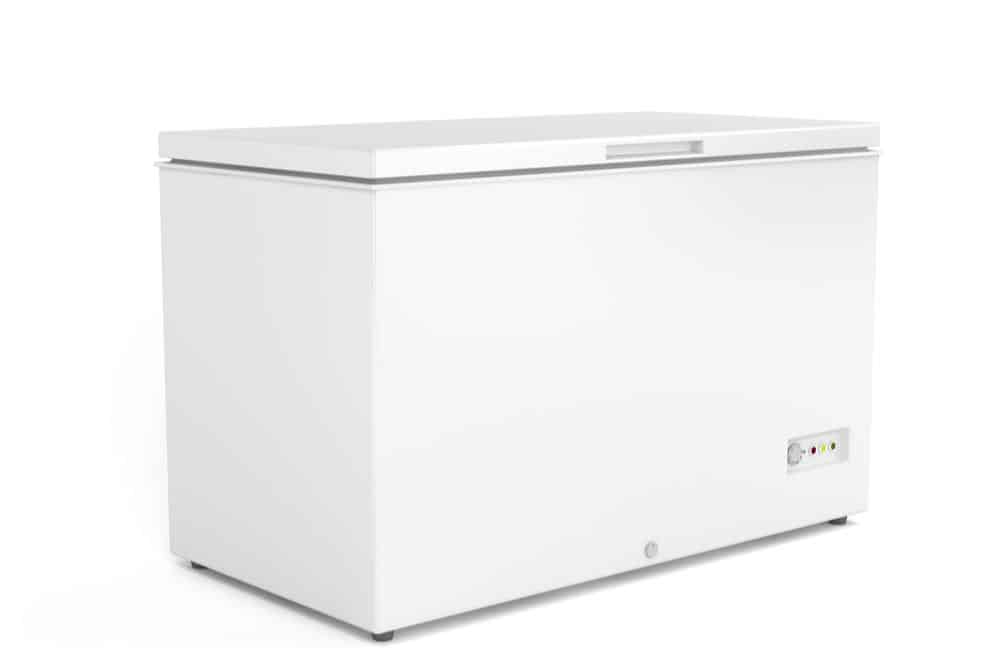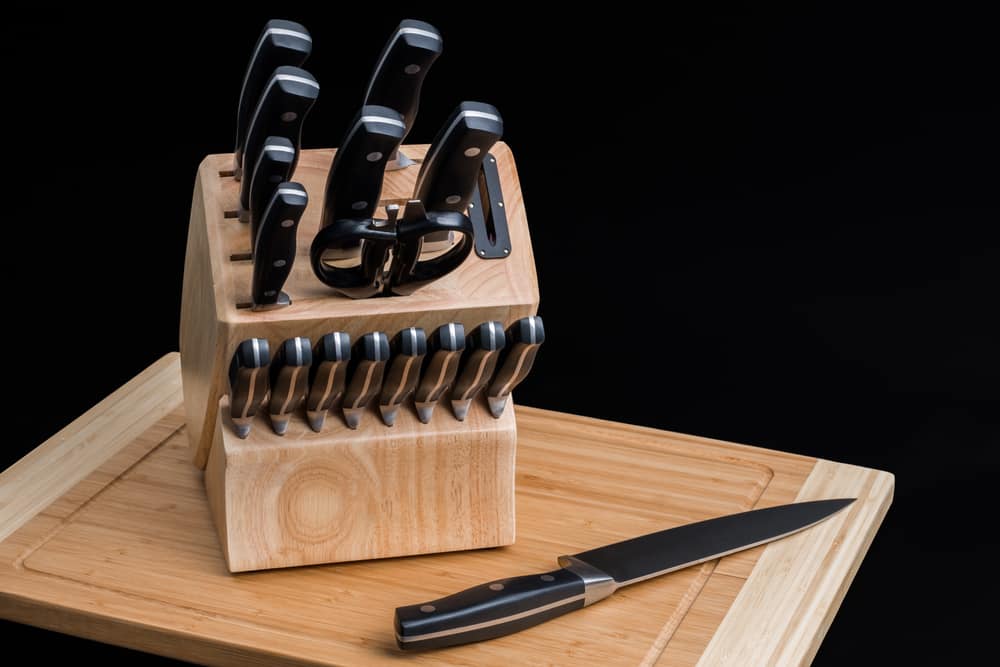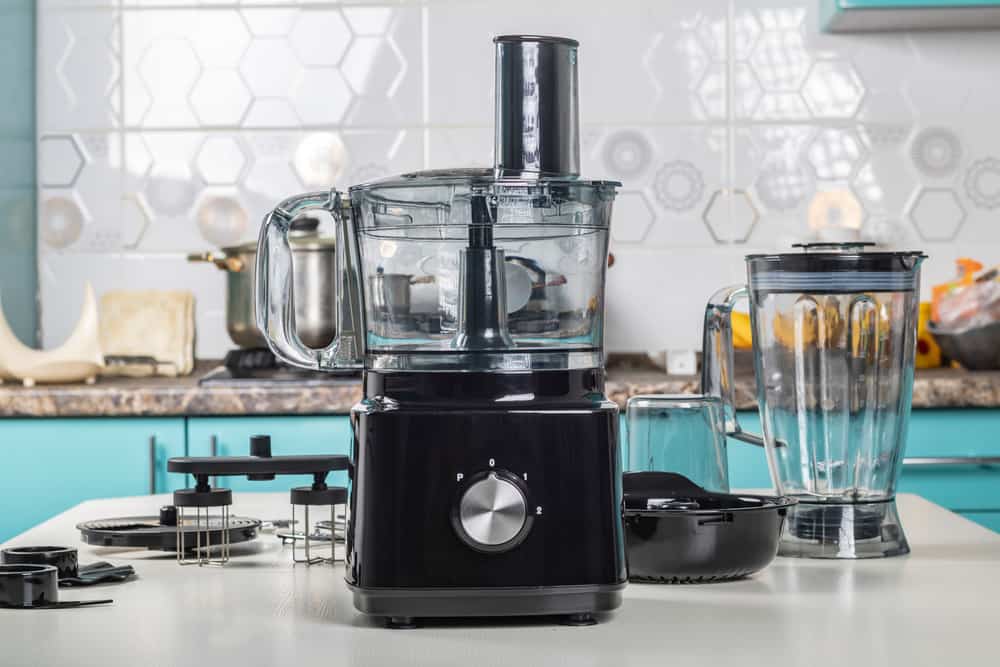Occasionally, the idea of putting things on top of the freezer seems like a great idea to make use of additional storage space or even to light up your kitchen area.
From a food safety standpoint, all food items with cold temperature requirements need to be stored within the cold air of the refrigerator or within the freezer compartment.
For example, you might think of enhancing your interior décor by putting your flowers on top of your fridge. Maybe you're thinking of saving on space and putting some fruit baskets here. It seems logical to even store dry food goods that have a long shelf life when being stored at room temperature. Whatever idea you have in mind, it's crucial to confirm whether it's safe to do so.

Putting items on a chest freezer prevents you from getting at the contents of your freezer
Experts think otherwise, arguing that it's not safe to put things on top of the refrigerator. In some cases, this could even be hazardous.
Read on to understand more about the notion of storing things above the fridge and what you can do to avoid this.
The small space above the fridge often looks empty, and most people try to get creative on how to make good use of such spaces.
There is no doubt that this is something that must have crossed your mind before. You might be reading this critique because you already have items on top of the freezer, and you want to know whether it's safe. 
It isn’t safe to store sharp heavy items - like knives - on your freezer or refrigerator
Usually, people use the space above the fridge to store kitchen appliances, plates, utensils, and cookbooks, among other things. However, it's crucial to keep in mind that the refrigerator is a piece of electrical equipment. It bears several risks, so it's recommended to avoid stuffing this top part of the fridge.
If you want to use this space or find it inevitable, there are crucial safety measures to mull over.
For starters, place a rubberized heat-resistant mat on top of your fridge, which prevents the items you will be storing here from moving around. The mat can also help avoid electric shock, especially when your kitchen appliances are faulty.
Have you ever thought about the risk of storing bulky items on top of the fridge or freezer? It's worth noting that the refrigerator is prone to movements. It can move around, making the bulky items fall on you, which is very risky.
Any time you open the fridge door, the fridge moves slightly; such slight movements can cause damage. For instance, if you store delicate utensils on top of the freezer, sudden movements could cause a massive mess in the kitchen.

Food processors are heavy - if it falls it can hit you on the head, break, or damage your floor
Most homeowners put bulky items like a microwave to make it convenient when warming leftover food or defrosting frozen food. Sudden movements can lead to huge losses if the microwave falls. Remember, you also risk getting hurt in the process. So, apart from thinking about the losses you might incur, you should also think about your safety.
Bulky items on top of the freezer or fridge are even more dangerous for young kids and babies. Kids can innocently pull the kitchen door forcefully, creating sudden movements.
Items on top of the refrigerator can fall, potentially hurting your child. You can deal with such avoidable accidents by taking the necessary precautions.
You might have a small kitchen with little or no space for your bulky appliances or other items. Try to find some space in other areas. Create space by decluttering your kitchen. It might also help to consider creating lower shelves within other shelves to give you more storage room.
It is also advised that you don't put anything on top of your mini fridge. The smaller, more compact size makes the structure of the mini fridge not as strong as a full sized fridge. Not to mention that items could fall behind the refrigerator impacting condenser coil performance.
Often, the refrigerator comes with an instruction manual, and if you read your manual carefully, you will notice that warnings are provided against putting things on top of the freezer. So, before asking, "Is it ok to put things on top of the freezer?" read your manual carefully.
Experts argue that storing things on top of the refrigerator can cause energy issues. In addition, if items fall at the back of the fridge or on the sides, this could potentially cause a severe risk.
Sometimes you may have placed your appliance somewhere other than the kitchen, like in the garage. If so, instead of putting things on top of the freezer, you can create shelves 3 inches above the fridge.
Again, if you must store things above the fridge, ensure that they are secure. Some of the items you will be putting there will not remain in the same spot forever.
Opening and closing the fridge's door can cause small movements, and eventually, things stored could fall. So, always confirm that whatever you decide to put on top of the fridge is secure.
Apart from the microwave, you might be tempted to put other heavy items on top of the fridge. Depending on the type of your refrigerator, the amount of weight the fridge can carry varies. Some are strong enough to support the weight of a microwave. Conversely, some might not be as strong.
However, on average, a standard fridge built using quality materials should support up to 20 kilograms. But as you have noted earlier, it's risky to store heavy things on top of the fridge. The microwave could fall, causing unwanted losses, not to mention that it could also damage your floor.
Avoid this by creating additional shelves around your kitchen for more storage. Putting up some shelves if the fridge is outside the kitchen could also work here. The overall goal is to ensure you put heavy kitchen appliances somewhere safer.
Perhaps you might be thinking about storing other lighter items on top of the fridge. Here is a look at some of the things you shouldn't store on top of your freezer.
Storing your cleaning products away from the little ones is always a safe practice. However, this doesn't mean you should store them on the fridge. Corrosive products can pose significant risks, even when stored in high places away from children.
While you might not put a microwave on top of a fridge, you might assume that it's ok to put smaller appliances, like a toaster. Nonetheless, these kitchen appliances are also breakable. So, you risk incurring losses if they keep falling.
It's also not recommended to put your medications on top of the fridge. For medicines to work effectively, you should store them according to the provided instructions. Certain temperatures in the refrigerator can affect the potency of your medications. Keep your meds away from any heat sources.
Putting your cookbooks, recipe cards, or old magazines on top of the fridge is also not advisable. These items might limit the airflow the refrigerator requires to function efficiently.
Wine and liquor are typically stored in unforgiving glass bottles. It's safe to avoid putting such items on top of the fridge. It's a danger to you and your little ones. So, use lower shelves or find other storage spaces to store these delicate items.
More importantly, avoid storing snacks and other kids' treats on top of the freezer. Kids will surely find out that you're hiding these delicacies and will want to get on top of the fridge, which creates a risk for your young ones, especially when you're not around to monitor them.
So, is it okay to put things on top of the freezer? The short answer is no, but if you absolutely want to use that space, take the necessary precautions to keep yourself and your stuff safe from harm.
